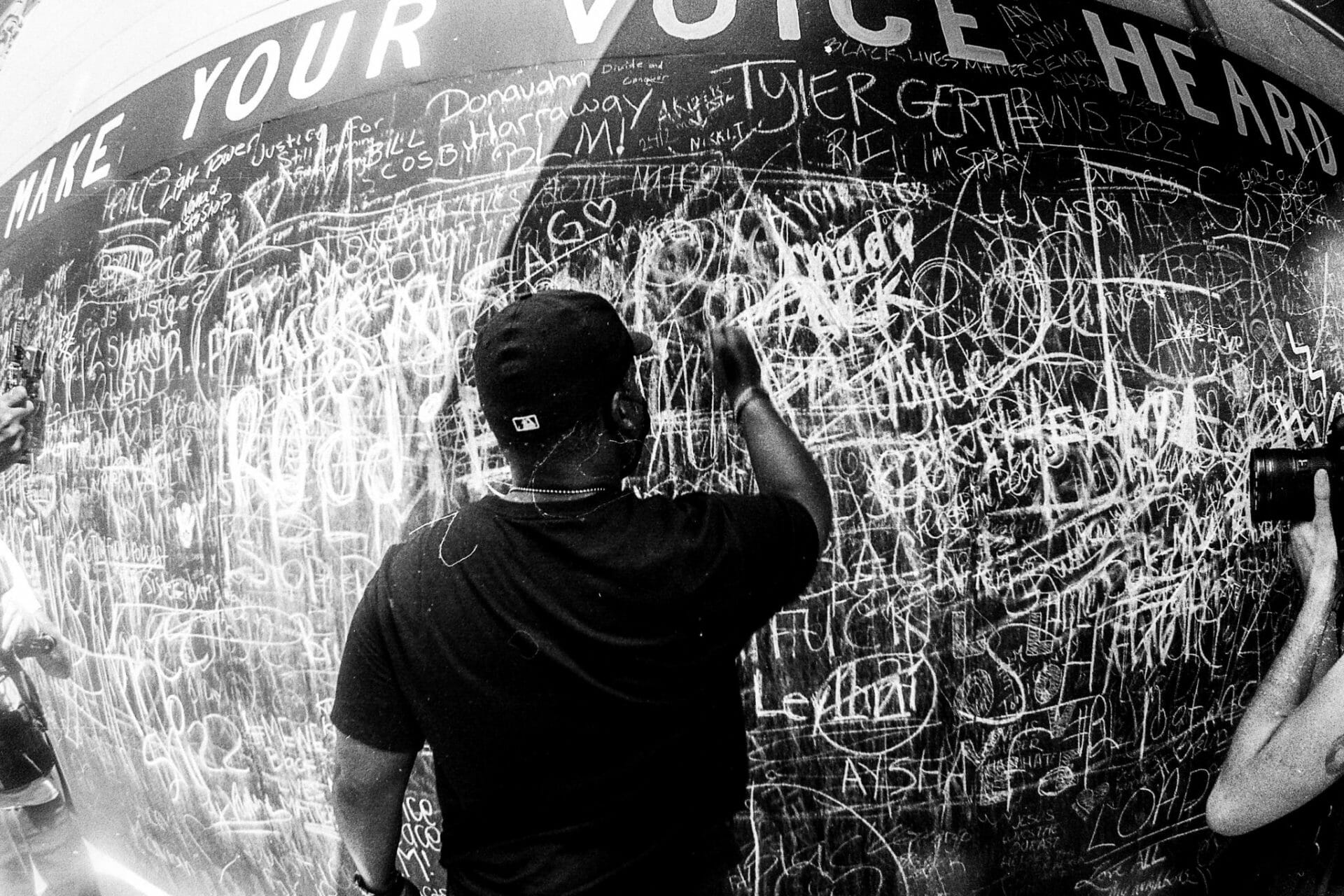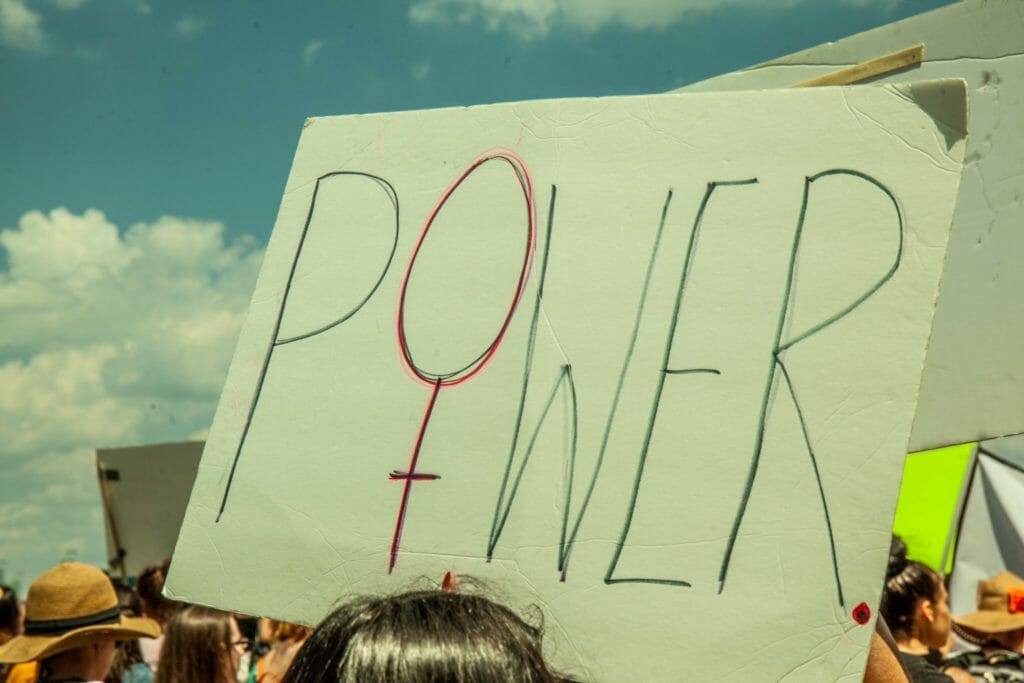This piece was published in collaboration with Georgia 55 Project.
Just a few days into early voting in the most crucial election year in U.S. history and recent Georgia history, Georgia voters are already experiencing symptoms of systemic voter suppression. Here\’s a comprehensive guide to your rights at the polls.
ATLANTA — To state the obvious, the 2020 election is shaping up to be like none that we have ever experienced in our lifetimes. Additionally, analysis of the 2018 midterms indicated that Georgia, along with Arizona and Texas, is moving into swing state territory. With Georgia potentially being a swing state, the stakes have never been higher. (You can read the Mainline’s general election cheat sheet and analysis here.)
In addition to all the ongoing political warfare surrounding this election, history and present day tell us that voter suppression is a very real threat. Whether that be through long lines at the polls, faulty voting machines, the exact match policy, broad voter purges, incorrectly placing voters on inactive lists, voter confusion, changing voters’ polling locations at the last minute, the signature mismatch policy, or intimidation at the polls, Georgia Republicans have proven they will go to any lengths to discourage or suppress the vote in Georgia to maintain their hold in Congress and in local offices.
We’re here to cut through the noise and embolden voters as they make their way to the polls or their ballot drop boxes. You have rights at the polls you may not be aware of. Let’s get to know them.
General rights
- You have the right to be free from intimidation, harassment, or coercion while casting your ballot. That includes any sort of aggressive questioning about your criminal record, citizenship, fluency in English, etc., in regards to your qualifications to vote.
- You have the right to cast your vote in private.
- In Georgia, you have the right to two hours off work to vote.
- If the polls close while you’re still in line, stay in line! You have the right to cast your vote.
- If you have a felony on your record, you can vote as long as you have served your parole/probation sentence, and all related processes (including fees) have been completed.
Accessibility rights
- If you are a voter with an impairment or disability, all polling places must be accessible in accordance with ADA requirements.
- Every polling place must have at least one voting system that allows voters with impairments to vote privately and independently. Usually, this is a machine that can read the ballot to you and let you vote by pushing buttons.
- A voter with a cognitive disability cannot be turned away from the polls because a poll worker thinks they are not “qualified” to vote.
- If you are 75 years old or older, or have an impairment/disability, go to the polls between 9:30 a.m. and 4:30 p.m. You will not be required to wait in line during this time. If you tell a poll officer you want to move to the front of the line, they must let you do so during those times.
- If you are a voter with a disability or have trouble with English, you have the right to receive in-person assistance from a person of your choice, like a friend or relative. If you have trouble voting due to the lack of English fluency, call a hotline! Hotline numbers are listed below.
Rights involving technical issues
- If the machines go down at your polling place, you can ask for a paper (provisional) ballot.
- If a poll worker tells you that you are not on the list of registered voters, you can request a provisional ballot. Even if you are not on the list, you are entitled to a provisional ballot.
- If you make a mistake on your ballot, you can ask for a new one.
When you go to vote at the polls you will need to bring a photo ID. Any one of the following will work:
- Georgia Driver’s License (even if expired)
- Any valid state or federal govt issued photo ID
- Valid employee photo ID from any branch, department, agency, or entity of the U.S. Government or Georgia (including at the county, municipality, board, and authority levels)
- Valid U.S. passport ID
- Valid U.S. military photo ID
- Valid tribal photo ID
- A student ID with photo from a public (but not private!) college, university, or technical college
If you do not have a photo ID listed above, you can still vote by provisional ballot — all you need to do is ask for one. Further, if you don\’t have one of these forms of ID, you can receive a free Georgia Voter ID card by contacting your county registrar’s office. You have three days after your vote is cast to bring the required photo ID to your county registrar\’s office in order for your provisional ballot to be counted.
After Election Day, election officials must investigate all votes cast via provisional ballot and will determine whether you\’re qualified to vote. If you\’re qualified, your provisional ballot will be counted.
There are two main hotlines we suggest calling if you experience any issues during your voting process: the Election Protection Hotline and the Voter Protection hotline. Both hotlines utilize volunteers to help answer voter questions and concerns at all stages of the voting process.
The Election Protection hotline is a non-partisan, national coalition offering help in 10 languages from 9 a.m. to 9 p.m. EST and can be reached at 866-687-8683. Languages available are English, Spanish, Arabic, Cantonese, Mandarin, Vietnamese, Korean, Bengali, Urdu, and Tagalog.
The Voter Protection hotline is provided by the Democratic Party of Georgia, offering help in seven languages. This hotline takes calls regardless of political affiliation and is available 24/7 (however, not all languages are available 24/7). This hotline can be reached at 888-730-5816. Languages available are English, Spanish, Urdu, Hindi, Korean, Vietnamese, and Mandarin.
So remember, if anyone tells you that you can\’t vote or you run into any other issues while you are at the polls, call a hotline — and don’t forget to ask for a provisional ballot!




